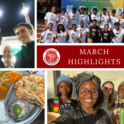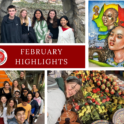StoriesBack to Stories
Christmas in Bulgaria
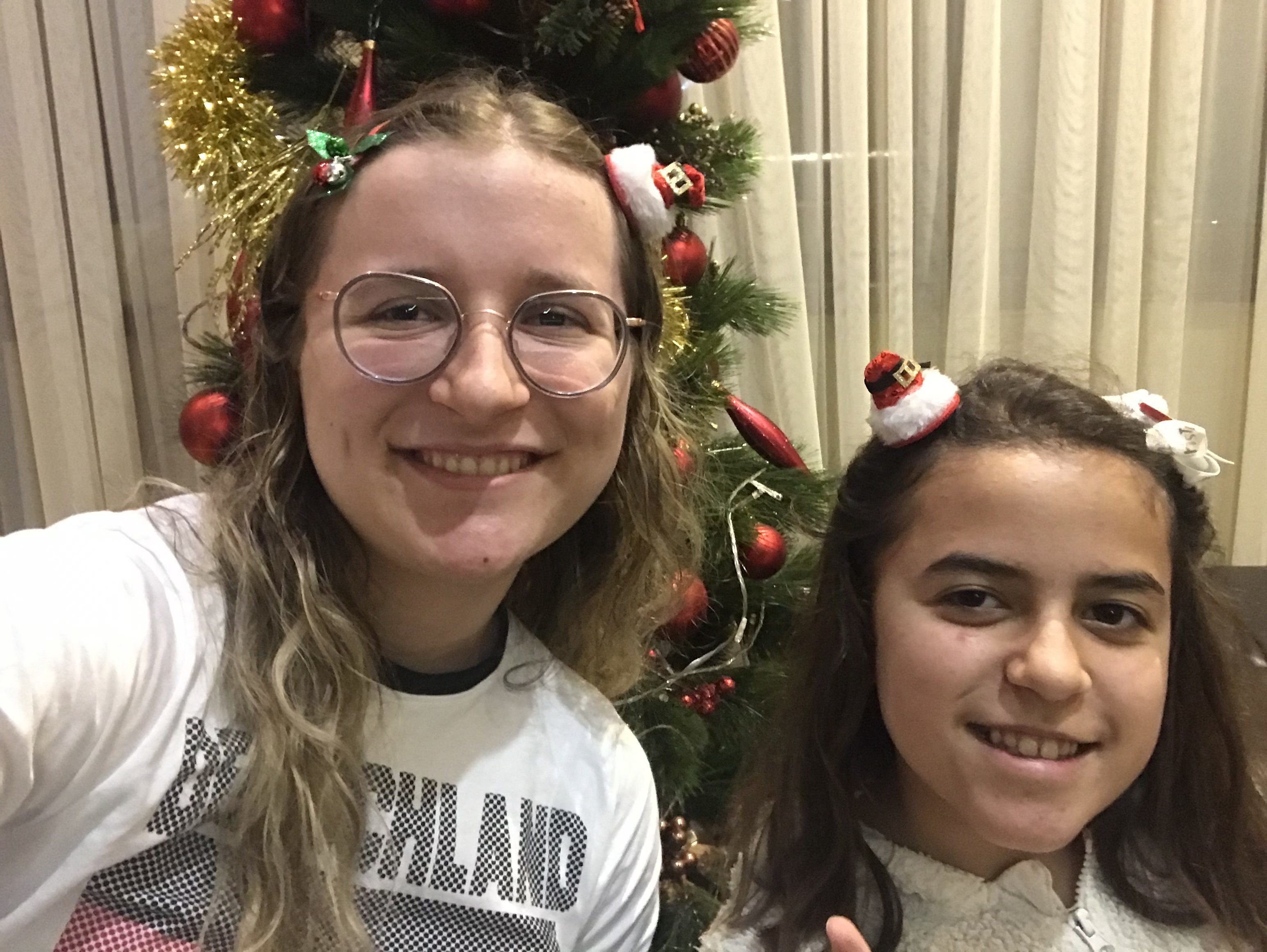
By Peri B., YES Abroad 2021-2022, Bulgaria, from Amherst, NY
Christmas in Bulgaria is an incredibly unique experience. The holiday season is a mix of traditional and Orthodox customs and is unlike anywhere else in the world.
Everything began in late November. Throughout Sofia, open-air Christmas markets began popping up. Festive stalls selling everything from hamburgers to handmade crafts buzzed with people milling around, socializing, and having a good time. At school, my class decided to do Secret Santa, and we celebrated Christmas by exchanging gifts and eating pizza. While Bulgaria considers Eastern Orthodox Christianity its traditional religion, I found that not many people follow Orthodox customs. Those who are more religious may participate in the Advent fast, which lasts 40 days from November 15 through December 24 (the Bulgarian Orthodox Church uses the Gregorian Calendar as opposed to the Julian Calendar). During this time, they won’t eat meat or dairy and will sometimes abstain from olive oil, wine, and fish, depending on the day.
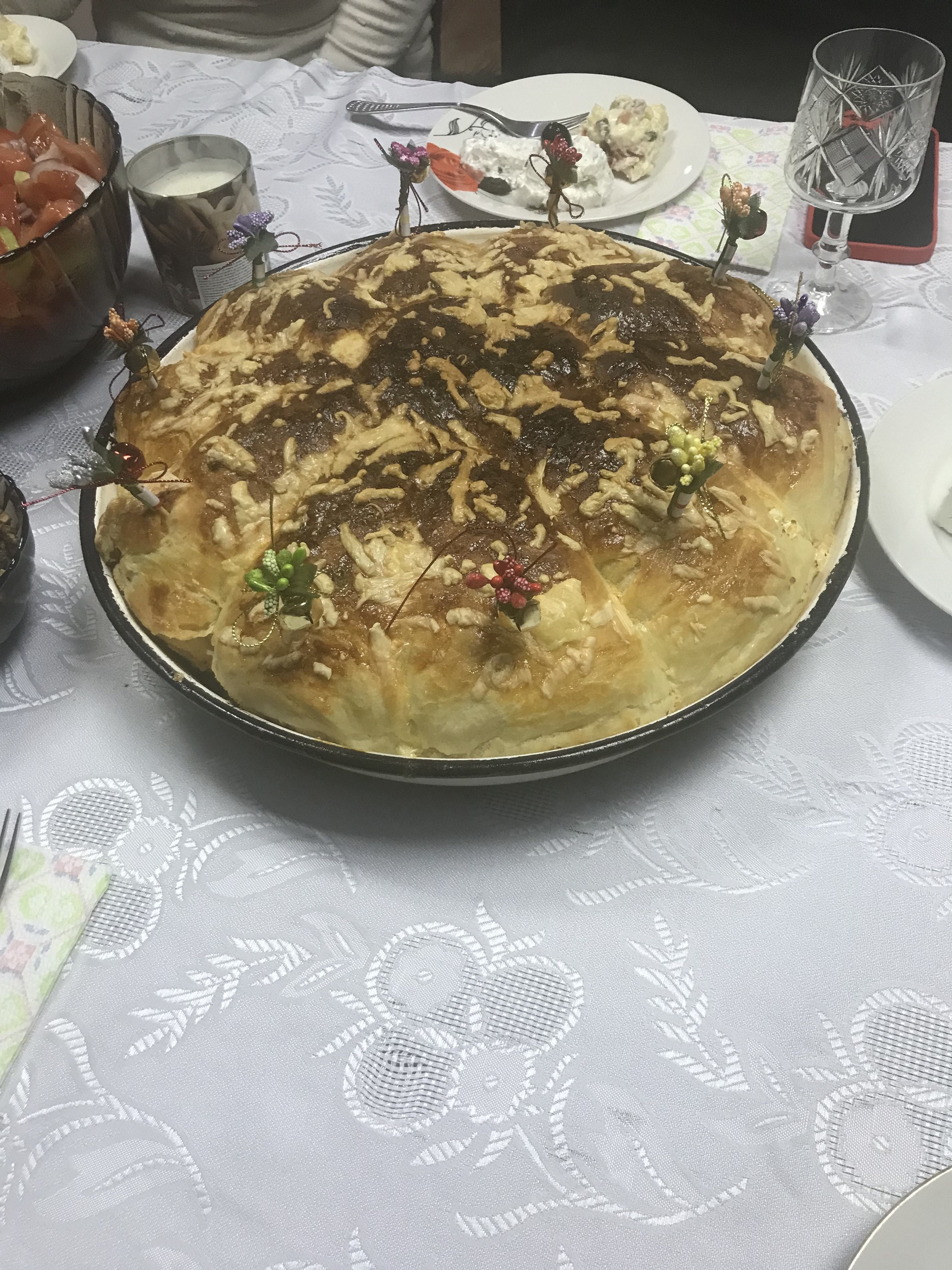
On Christmas Eve, the dinner table is set up in a very traditional way. There are an odd number of dishes on the table: usually seven, nine, or eleven. All the dishes are vegetarian, and after the meal, everything should be left on the table overnight so that deceased family ancestors have the opportunity to eat their fill. At my host family’s celebration, these rules weren’t followed very strictly; our table was packed with dishes, some traditional and others less so. We did leave the leftovers out until morning, however.
Bulgarians have a plethora of traditional Christmas foods. One of the most iconic is the Koledna Pitka. Pitka is a thick, cheesy bread in which a coin is baked. Whoever finds the coin in their slice at dinner can expect good luck in the coming year. The small, flower-like decorations you see on my host family’s Pitka contained scrolls with well-wishes for the coming year. Walnuts are also a Christmas Eve staple. The dinner guests each crack one open, and the quality of the walnut determines the guest’s fortune next year. In my experience, the walnuts were already cracked for us and put out in a bowl. Another dish we enjoyed was Sarma, cooked cabbage leaves wrapped around rice or other fillings. Other common dishes include stuffed peppers, bean soup, banitsa (a cheese pie), and assorted salads.
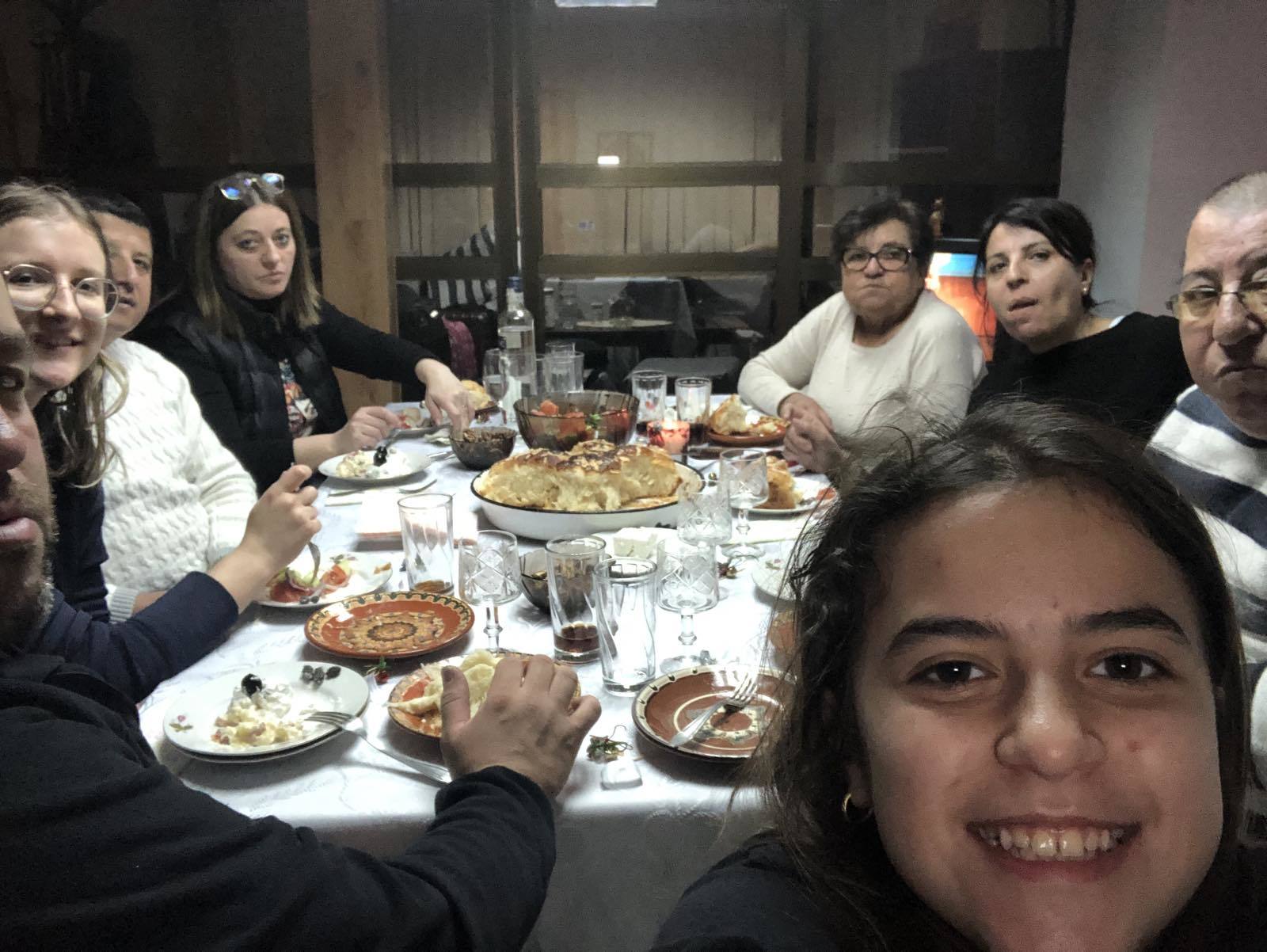
After dinner, many Bulgarians will go to midnight mass. After midnight, Christmas carolers (Koledari) go house-to-house in villages singing traditional Bulgarian carols. This is known as Koleduvane. The households they visit may give buns, meat, flour, or money to the carolers to express their gratitude. Unfortunately, I did not get to experience the Koledari singing, but I did get to experience a wonderful evening chatting and watching Christmas movies with my host family.
Christmas in Bulgaria is laden with tradition; and while there are so many more customs to delve into, I hope this excerpt of my experience gives you a window into this ancient culture.


